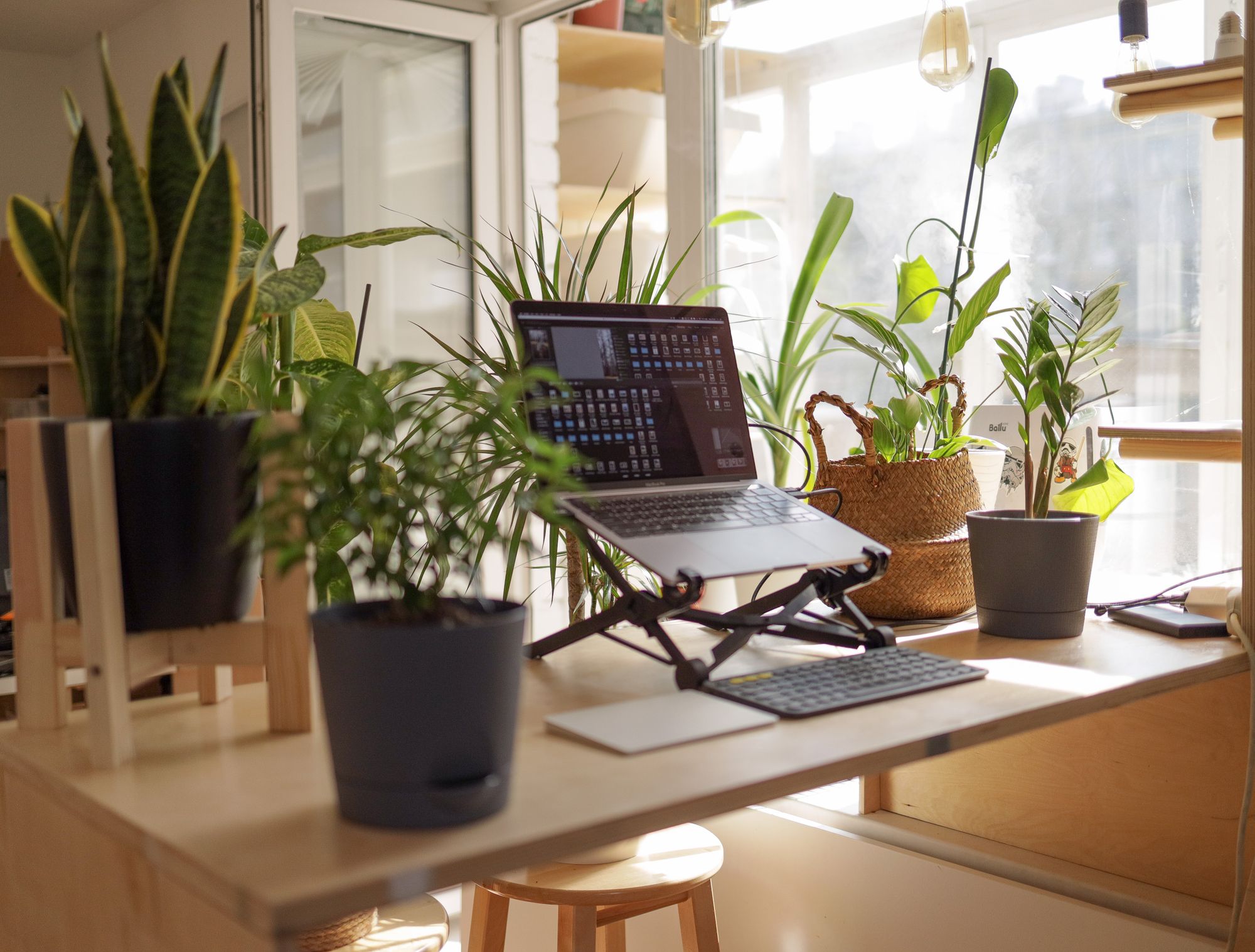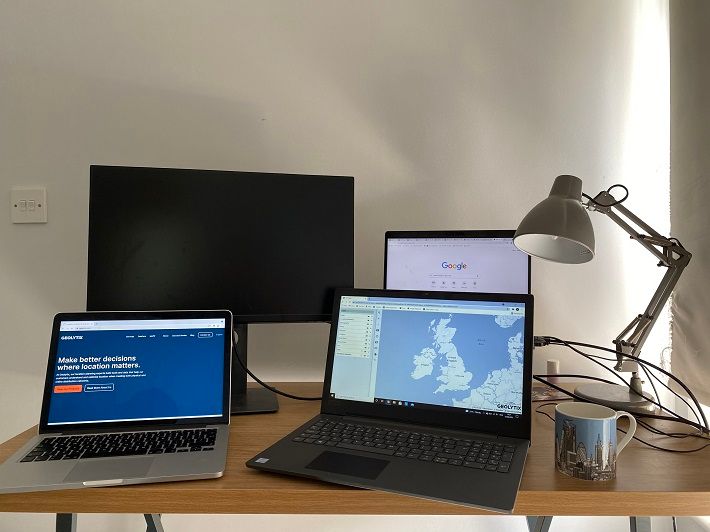How to juggle freelance work with a research degree: a masters guide
Oliver Hall recently joined Geolytix as a freelance software configuration developer, whilst completing his Masters at the University of Leeds. Here he discusses juggling masters work, a new job and multiple laptop screens...

A wiseman once told me that if you are ever offered a work phone, turn it down, for you will spend the rest of your life carrying two phones everywhere. The first thing I learned whilst undertaking a full-time masters degree alongside freelance work with Geolytix was that this advice needs to be extended for the post-COVID era.
Tip 1: Try and avoid taking on new laptops. I currently have four screens, only one of which belongs to me. A personal laptop, a university issued laptop, and Geolytix issued laptop, and a second monitor. That is more laptops than one man needs, and it is certainly more laptops than can fit in my backpack. It’s a nightmare.

Aside from the proliferation of laptops in my house, the post-COVID era has also been noticeable through the advent of flexible working, it is the new-normal, or so they say. Some companies are embracing this more than others, so choose wisely.
Tip 2: Find yourself a degree or a job that allows for flexible hours. I have been fortunate in this instance. Geolytix made it clear, even at interview stage, that they were prepared to be very flexible with the hours I worked, and it has certainly been a benefit. There have been weeks where my MSc has been very quiet, and likewise, weeks where Geolytix have been very busy. Working with such a flexible company, coinciding with a self-led degree, has allowed me to tailor my time, clawing back my time freelancing when my MSc is getting busy, and offering extra days to Geolytix when they are busy. It’s a case of give and take.
That said, you can have too much of a good thing. And allowing yourself to get too flexible, well, that is a not a good thing.
Tip 3: Try and retain structure. This is most important for your degree. I’ve not found that flexibility with Geolytix has meant that I have had a tendency to slip back to first gear, because at the end of the day, you have people counting on you, and deadlines to meet, you have to get it done. But taking one’s foot of the gas with regards to my MSc… which has one deadline… in 12 months… well, that’s a different story. It’s been very important for me to keep a structure, at least a semblance of a timetable, lest I find myself floating towards the sofa and treating my non-Geolytix days as time off: four-day weekend, anyone? Try and make sure you do your job and your degree on the same set of days each week, structure and flexibility are both important. As my father used to say: Everything in moderation.
Now, I don’t want to sound like a guidance councillor, but perhaps the biggest benefit of maintaining freelance work alongside a research degree is transferable skills.
Tip 4: Take the opportunities that come your way and don’t be afraid to push yourself. I did my undergraduate degree in Geography. My MSc involves creating a composite index to measure loneliness in the UK, it’s part-sociological, part-statistical, part-GIS. So how did I end up freelancing as a software configuration developer? Transferable skills and extra-curricular courses. The University of Leeds offered me a research and development grant; with this I took courses in R and SQL, mostly statistics based, but also for spatial analysis. I quite liked coding and applied to a data analyst role with Geolytix. Instead, they encouraged me to apply for a role that was part data analyst and part software configuration development. A little bit trepidatious, I applied, and to my surprise, I was offered the role (imposter syndrome). I am now learning JavaScript, HTML, CSS and more. Through both freelancing and my degree, I have developed skills in several different coding languages - and some knowledge of JavaScript (I’m working on it). I wouldn’t have got here if it wasn’t for taking advantage of the development grant that we were offered from the University of Leeds, and then jumping into the deep end with a software development job – well, lightly pushed into the deep end, I suppose.
So, structure and flexibility can be friend or foe, you have to learn to balance it. Extra-curricular courses are definitely a good thing, they can open doors you hadn’t even considered before. Jump into the deep end. And for sake of your sanity and your electricity bill, try and keep the laptops to a minimum.
Oliver Hall, Freelance Software Configuration Developer at Geolytix
Photo by vadim kaipov on Unsplash
